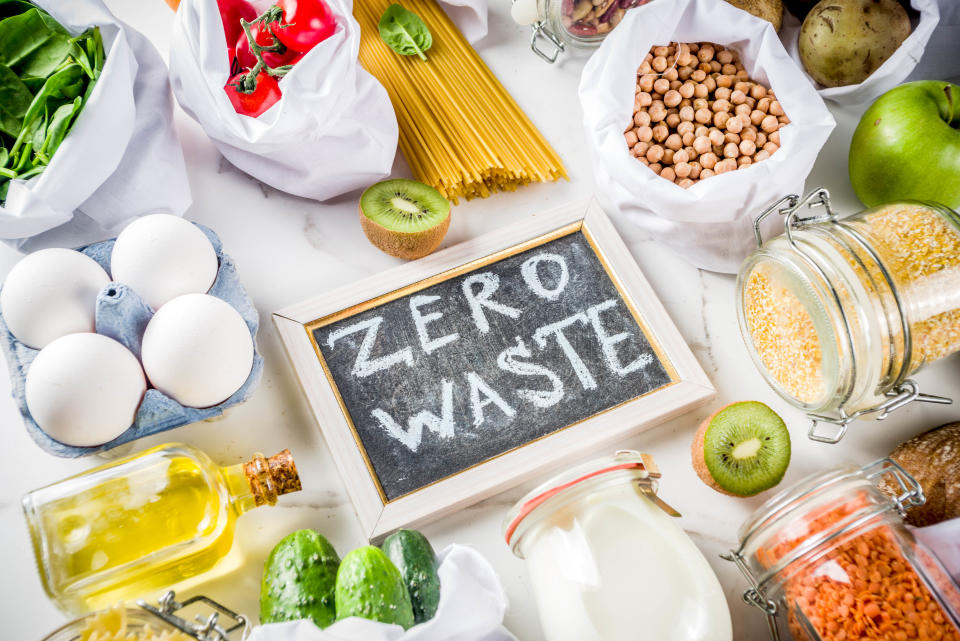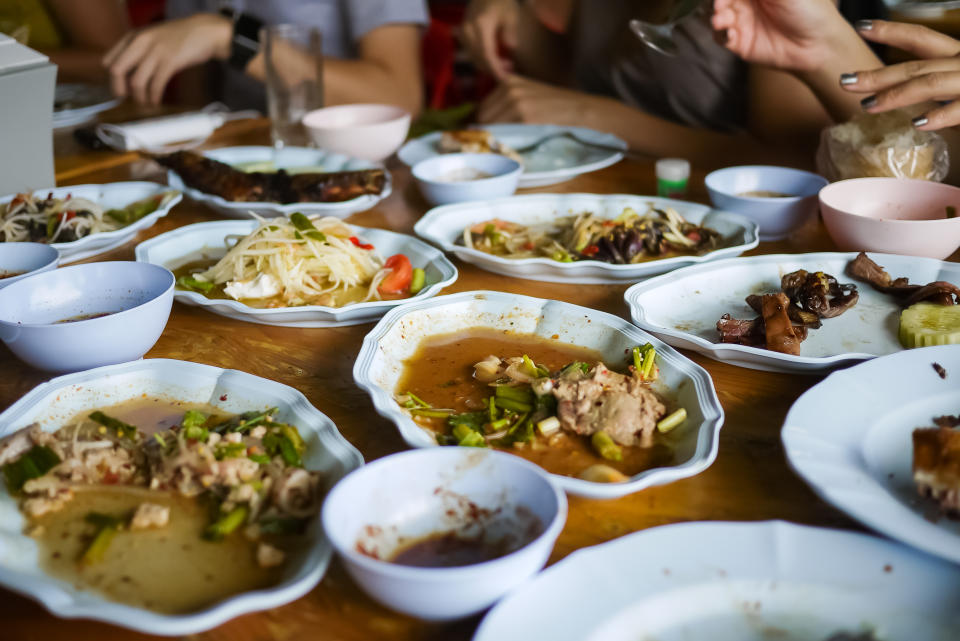Five ways to cut down on food waste –– and save money

If you’ve ever accidentally let a bunch of bananas go brown or left a bag of soggy salad at the back of the fridge, you aren’t alone. Although many of us are trying harder to be more careful with our use of plastics and recycle more, it can be difficult to stay on top of another problem - food waste.
In the UK, we waste around seven million tonnes of food - five million of which is edible, according to the Love Food Hate Waste campaign. When we waste food, we waste all the energy that goes into growing, harvesting, transporting and packaging it. And if it ends up as landfill, it produces methane, a greenhouse gas that makes a significant contribution to global warming.
Not only does food waste affect the planet, it affects our bank balances too. A recent study by the savings website VoucherCodes revealed that the average UK household throws away around £455.68 worth of food a year - which equates to an astonishing £9.7bn ($12bn) across the country annually.
So what can you do to cut back on food waste?
Cook the right portions
We’re all guilty of throwing a little bit more pasta in the pan or putting a couple of extra potatoes in the oven, particularly if we cook when we’re already hungry. More often than not, though, we end up leaving some leftovers on our plates - which could have contributed to another delicious meal.
Sticking to the correct portion sizes can help with this - so make sure you check the back of the packet for guidance. Love Food Hate Waste has a handy portion planner which helps you work out exactly how much food you need per person, per meal.
READ MORE: Five simple money-saving apps
Check what you have before you buy
Everyone, at some point, has bought an extra bag of onions on the way home from work - only to find a bag languishing at the bottom of the fridge. Likewise, we’ve all panic-bought milk - on the off-chance we’ve got none for our morning coffee.
It’s worth checking to see what you have already before going to the shop and overbuying items, which would avoid products spoiling and going to waste. This is less of a problem with non-perishable items, such as dried pasta or tinned food, but it’s definitely an issue when it comes to fresh produce like fruit or veg. On average, UK households throw away an average of 170 potatoes every year.

Don’t be afraid to ask for a doggy bag
If you’re eating out and your eyes were bigger than your stomach, don’t be too embarrassed to ask for a doggy bag to take your leftovers home. What you can’t manage for dinner may make a great lunch the next day, if kept in the fridge or stored properly overnight.
According to Zero Waste Scotland, customers are keen to be offered doggy bags to take leftover food home, yet two fifths are too shy to ask. Restaurants participating in the organisation’s Good to Go pilot, where customers were proactively offered doggy bags, reported average food waste reductions of 42%.
Be inventive
It’s easy to accidentally waste food without realising. If you’re cooking broccoli as a side dish to a meal, most of us throw away the stalk without giving it a second thought. But being inventive with your meals and your cooking can reduce waste and make food go much further, saving you money too. Try chopping the stalk finely to add to a vegetable soup, or using leftover vegetable peels to make your own stock - which you can freeze to be used when you need it.
READ MORE: Five easy ways to cut down your day-to-day spending
Store food properly
Storing your food properly can help it last longer, making it far easier to use up what you have before it goes bad. Keeping your fridge below five degrees is essential for storing products like milk - and making sure you shut your fridge door (when making a cup of coffee or tea, for example) can help keep the temperature down.
Using the freezer wisely can also help cut back on unnecessary spending and waste. If you often end up with a few slices of stale bread at the end of a packet, try freezing it in sections - and only taking out what you need for a couple of days. If you buy a multipack of meat or fish, freeze it in sections that you can defrost when you need - rather than cooking too much at a time and throwing it away.